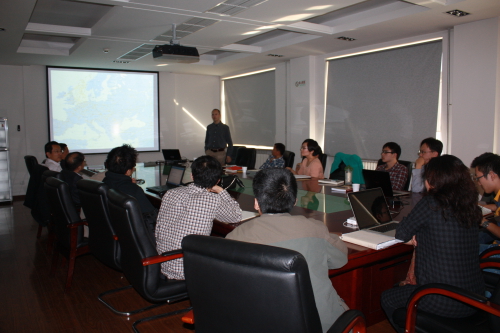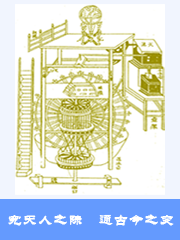- “Fuelling Europe: Energy, Technology, and Modernization 1750-2000“, a lecture by Per Högselius at the IHNS
Invited by Department of History of Science and Technology in the West (DHSTW), Dr. Per Högselius, associate professor at the Royal Institute of Technology (KTH), Stockholm, Sweden, gave a lecture entitled “Fuelling Europe: Energy, Technology, and Modernization 1750-2000“ at the IHNS on Oct. 11th, 2013. Professor Han Qi of the IHNS presided over the lecture, and professors and graduates from the IHNS and other institutions attended the lecture.
Dr. Per argues that the really crucial factor in explaining the energy transition is "infrastructure" - that is, geographically large systems designed for transmitting and distributing energy over vast distances. The key inventions, accordingly, are not the steam engine, the internal combustion engine, or the nuclear reactor, but the coal barge, the railway locomotive, the high-voltage transmission line, the high-pressure gas pipeline, and the oil tanker. Europe provides a fascinating case of energy supply from an infrastructural point of view, since the large technical systems that were built in different energy sectors crossed a variety of political borders. In this way was it possible for countries without a favorable geology to access fuel for modernization. But the "transnational" character of Europe's energy infrastructure also created political risks and opportunities, of great importance for understanding Europe's modern history more generally.
Dr. Per Högselius primarily focuses on the history of modern energy systems in Europe, including nuclear power, electricity, oil, and natural gas. His latest book is the freshly published Red Gas: Russia and the Origins of European Energy Dependence (Palgrave Macmillan Transnational History Series, 2013). He is also co-editor of “The Making of Europe’s Critical Infrastructure“ (to be published in November 2013). He is currently about to complete a co-authored monograph entitled “Europe’s Infrastructure Transition: Economy, War, Nature.“





